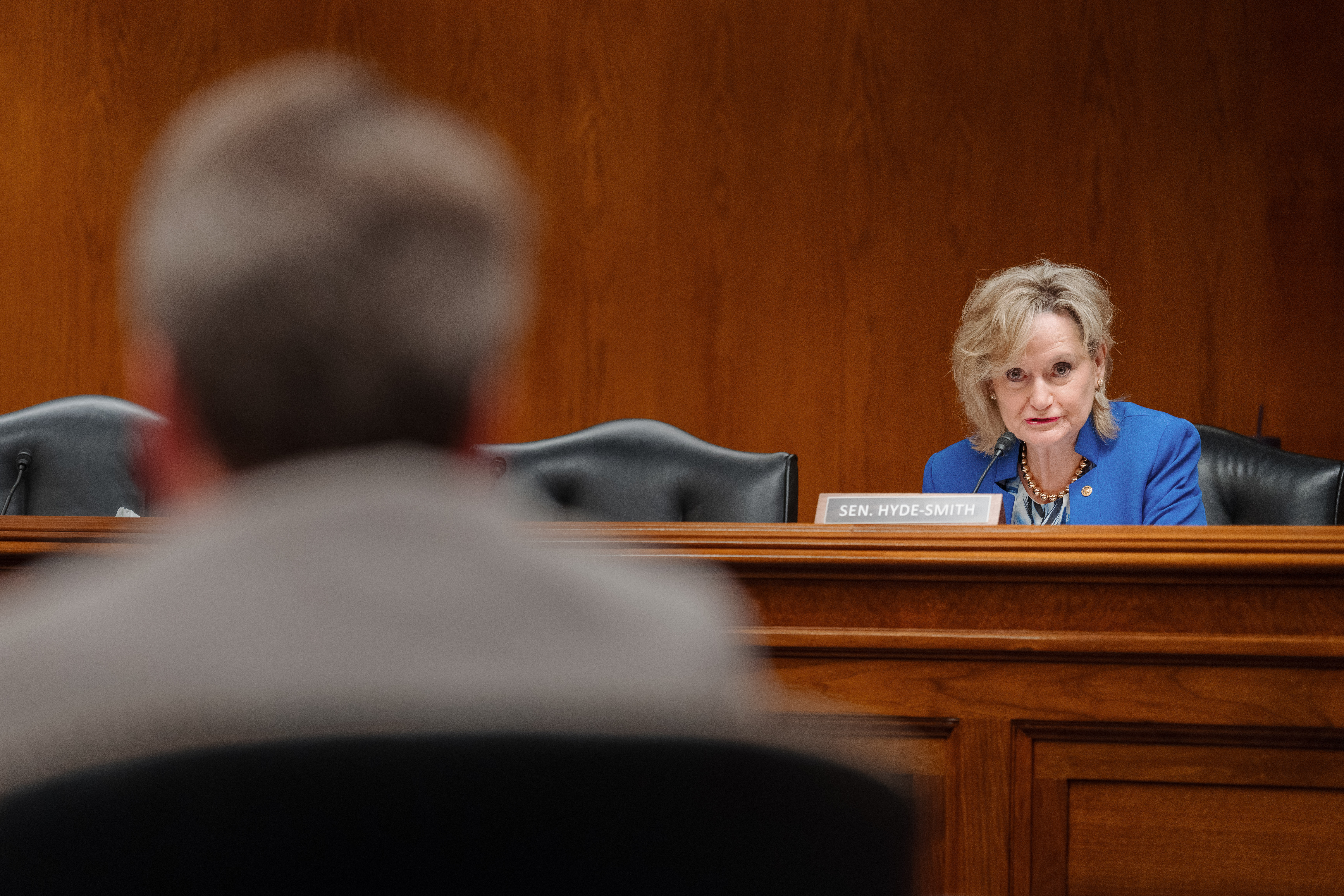WITH EYE ON HEALTH OF U.S. SHRIMP INDUSTRY, HYDE-SMITH SEEKS DATA ON FDA INSPECTION OF IMPORTS FROM ECUADOR
At Hearing, Hyde-Smith Warms that Gulf Coast Shrimpers are Suffering from Effects of Foreign Subsidized Importers

VIDEO: Senator Hyde-Smith and FDA Commissioner Discuss Imported Shrimp Inspections, Domestic Shrimp Industry.
WASHINGTON, D.C. – U.S. Senator Cindy Hyde-Smith (R-Miss.) today asked the head of the Food and Drug Administration (FDA) to provide detailed information on its inspections of shrimp imported from the government-subsidized shrimp industry in Ecuador.
Hyde-Smith received a commitment from FDA Commissioner Dr. Robert Califf to be given data about FDA inspections of Ecuadorean shrimp imports and subsequent refusal rates since the signing of a U.S.-Ecuador Regulatory Partnership Arrangement (RPA) in August 2023. Hyde-Smith made her request at a Senate Agriculture Appropriations Subcommittee hearing to review the FY2025 FDA budget request.
“Because of bad actors in other countries, Mississippi shrimpers and processors don’t know if they’re going to survive another season,” Hyde-Smith said. “The primary reason for this is that many foreign countries unfairly subsidize shrimp production and dump shrimp onto the market at prices that domestic producers can’t compete with because we do not subsidize. Ecuador is one of the primary bad actors.”
Hyde-Smith praised the 2023 RPA with Ecuador, which she said should “strengthen food safety in shrimp intended for the U.S. market.”
“This is important both for public health and for the future of our domestic shrimp industry,” Hyde-Smith said. “Domestic shrimpers should not have to compete with unfair trade practices, but they should especially not have to compete with shrimp riddled with illegal and dangerous chemicals and drugs.”
Califf thanked the subcommittee for providing additional funding to undertake the RPA with Ecuador, and two potential agreements with India and Indonesia. These three nations are leading shrimp importers to the United States, where 90 percent of the shrimp consumed is foreign sourced.
“We have to keep foreign imports at the same standards as we have in the United States,” Califf said. “I agree with everything you said about needing to fortify the industry here… We do have this obligation, that you referred to, to keep these chemicals out.”
Separately, Hyde-Smith recently sent a letter to Commerce Secretary Gina Raimondo that criticized her department’s handling of antidumping and countervailing duty investigations, particularly regarding Ecuadorean shrimp imports, and called for the Commerce Department to fully investigate and counteract all unfair trade practices.
“I am committed to ensuring your agency takes appropriate actions to protect this industry that is so essential to the Mississippi Gulf Coast. I am deeply concerned that Commerce is acceding to Ecuadorean companies’ untimely requests, granting repeated extensions, waiving basic reporting requirements, and permitting unwarranted deviations from normal practice. These actions are a slap in the face to the domestic industry your agency is supposed to protect,” Hyde-Smith wrote.
###
